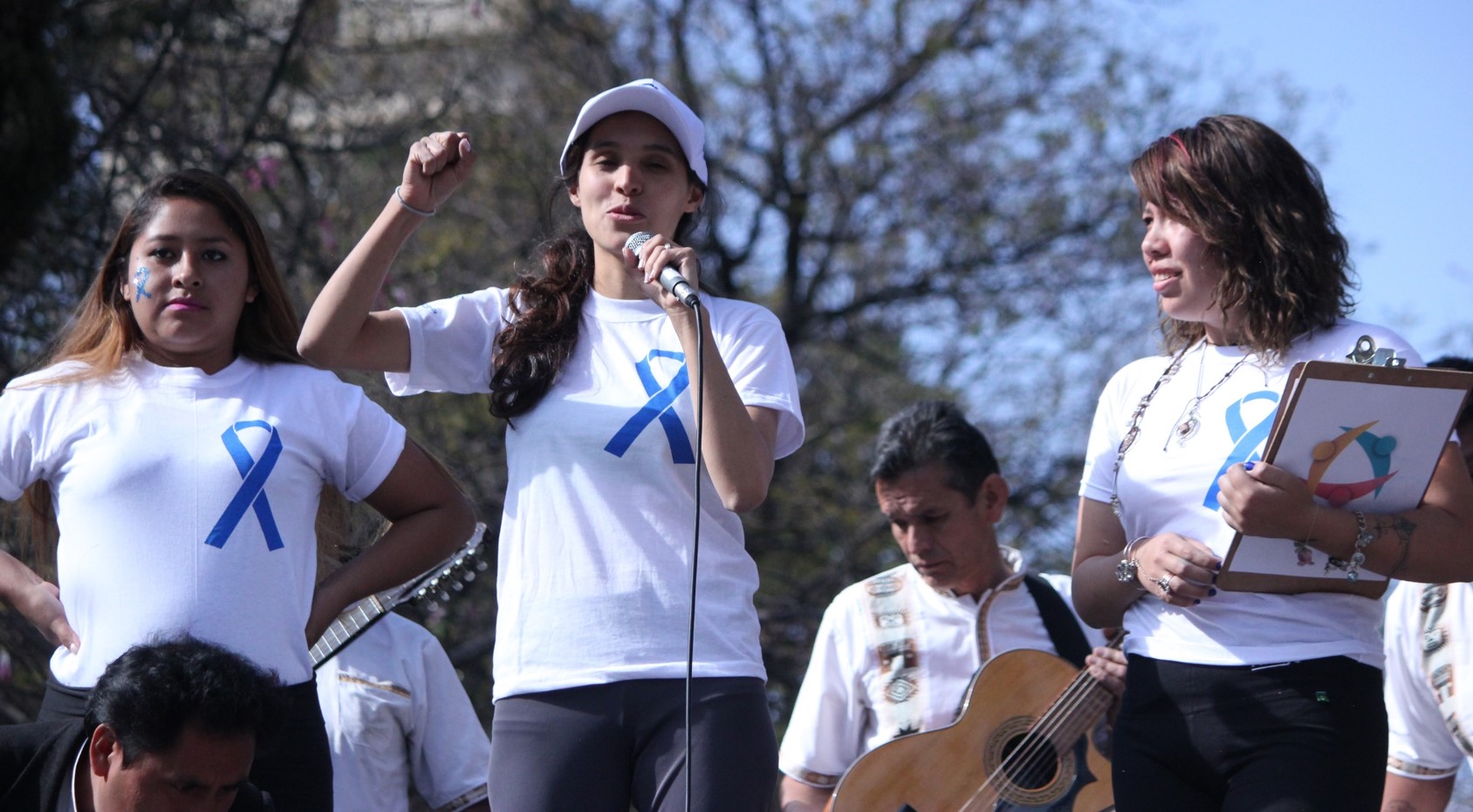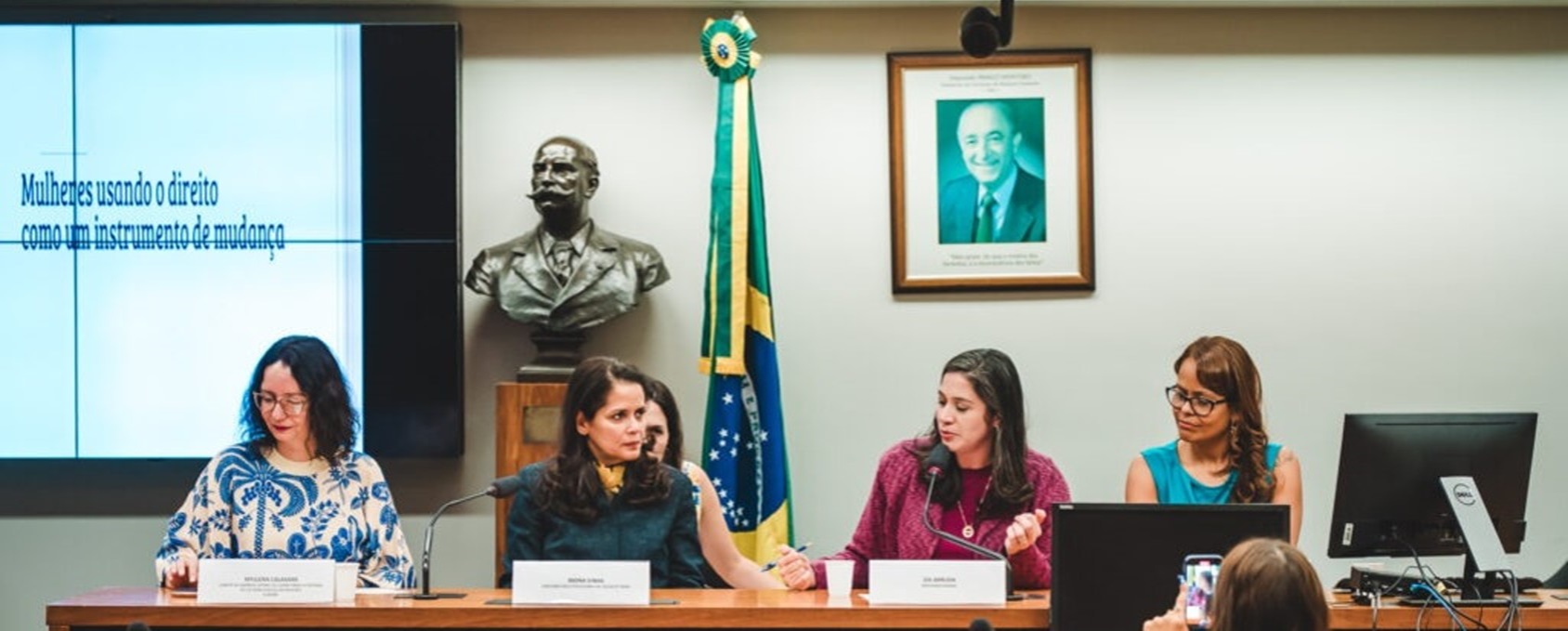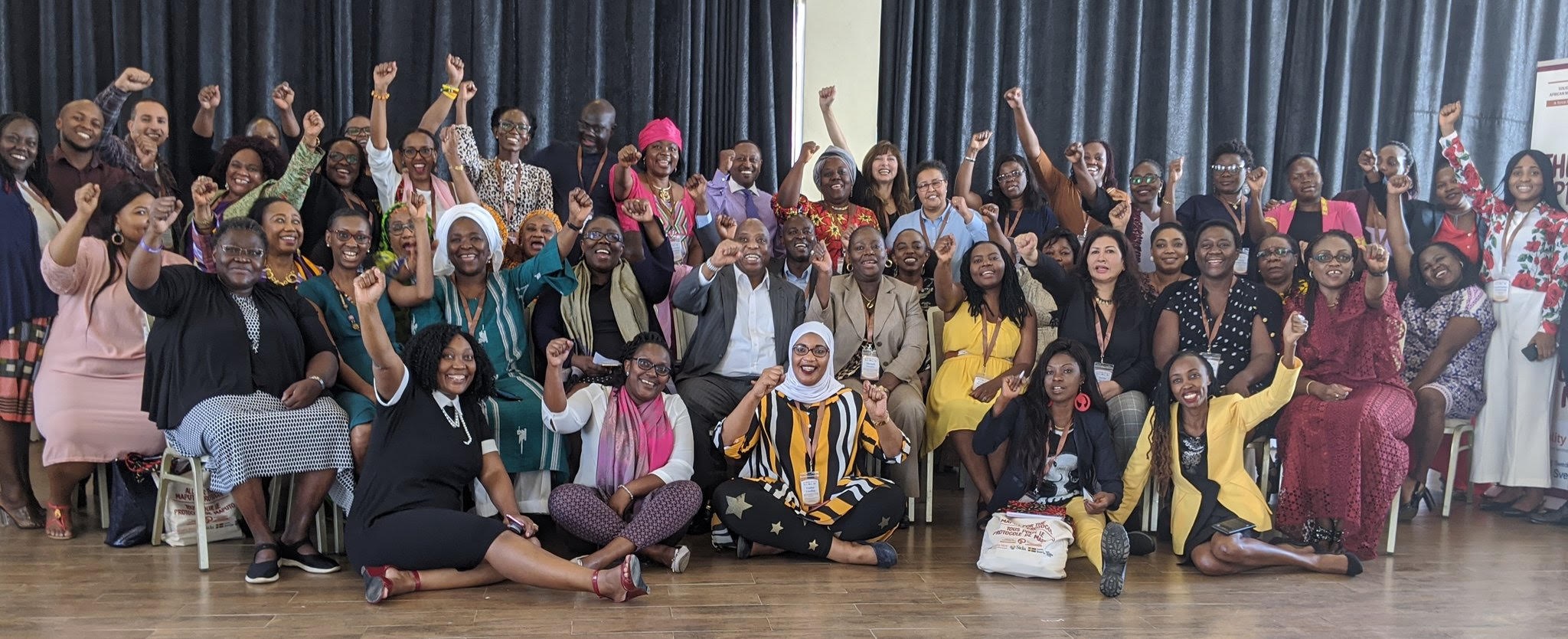
About the Together Women Rise Grants Program
Together Women Rise’s Grants Program has two key components that support our overall mission to achieve global gender equality:
- Featured Grants
- Transformation Partnerships
Featured Grants are largely focused on delivering direct services to women and girls by funding grassroots organizations that empower and support women and girls in low-income and marginalized countries around the world. Some examples include funding organizations that provide scholarships for women and girls to attend school, or that improve access to healthcare in remote areas where this care is nonexistent or limited.
Transformation Partnerships are designed to invest in areas where we can make the biggest impact on achieving global gender equality by addressing the root causes of gender inequality.
Transformation Partnerships are necessary because we cannot reach gender equality by funding direct services alone. The inequality is too deeply rooted in social and cultural norms, beliefs, practices, and laws. We must address these root causes of inequality and the systems that hold women back and prevent them from having equal access to opportunities, resources, and decision-making power.
Together Women Rise knows that both approaches are crucial to achieving global gender equality — funding direct services through our Featured Grants and funding “systems change” through our Transformation Partnerships.
Our Transformation Partnership with Equality Now
Together Women Rise has awarded a Transformation Partnership Grant in the amount of $100,000 per year for two years (2023 and 2024) to support Equality Now’s work to achieve legal gender equality and end harmful practices, sexual violence, and sexual exploitation.
A Global Issue: Creating a Just World for Women and Girls
Almost every country in the world has laws that treat women and girls as second-class citizens. On average, women across the world are afforded just three quarters of the legal rights as men (Source: World Bank).
While legal discrimination exists in many forms, according to Equality Now there are four broad categories of legal discrimination related to:
- Marital Status – Sex discrimination in marital status laws renders women and girls subordinate in many aspects of family relations before, during, and after marriage
- Personal Status– Sex discrimination in personal status laws negatively impacts the ability of women to conduct various aspects of their daily lives.
- Economic Status– Sex discrimination in economic status laws restricts women from being economically independent, limiting access to inheritance and property ownership as well as employment opportunities, thereby reinforcing gender stereotypes and roles.
- Violence– Sex discrimination in laws purporting to address violence, or silence on the issue within the law, can actually promote or perpetuate violence against women and girls because there is little to deter perpetrators from committing crimes or inadequate recourse for victims; intimate partner and sexual violence is disproportionately inflicted upon women and adolescent girls.
UN Women reports that it may take another 286 years to remove discriminatory laws and close prevailing gaps in legal protection for women and girls.
A Few of the World’s Most Sexist Laws, Policies & Norms
Source: World Bank Read more: 50 of the World’s Most Sexist Laws: A Snapshot of Gender Inequality (unfoundation.org) |
Other Resources:
- Shaping the law for women and girls: Experiences and lessons from UN Women’s interventions (2015 – 2020) | Publications | UN Women – Headquarters
- Nearly 2.4 Billion Women Globally Don’t Have Same Economic Rights as Men (worldbank.org)
- Shaping the law for women and girls: Experiences and lessons from UN Women’s interventions (2015 – 2020) | Publications | UN Women – Headquarters
- Equality Now’s Words and Deeds Report
- Equality Now 2022 Impacts Report
A Snapshot of Changing Women’s Legal Rights in the U.S.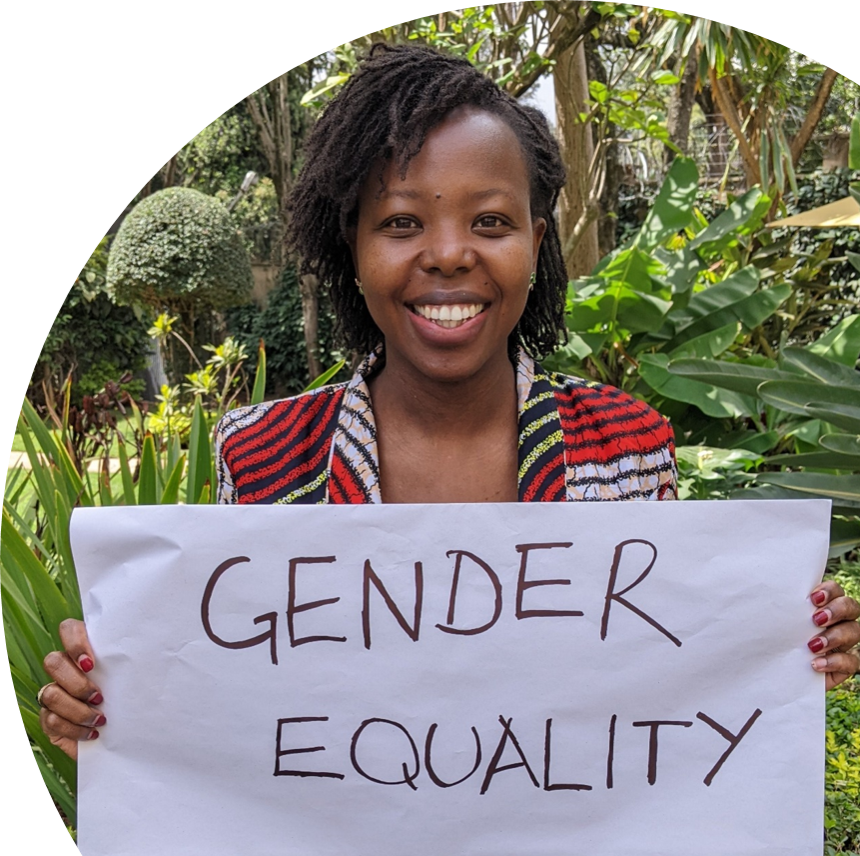
1920 — The 19th Amendment gave women in the U.S. the right to vote.
1963 — The Equal Pay Act makes it explicitly illegal to pay women a lower wage than men simply based on sex.
1966 — the U.S. Court of Appeals for the Fifth Circuit ruled that women have an equal right to serve on juries.
1968 — The Equal Employment Opportunity Commission declares that age restrictions on flight attendants’ employment are illegal sex discrimination under Title VII of the Civil Rights Act of 1964.
1971 — Barring women from practicing law becomes prohibited.
1974 — The Equal Credit Opportunity Act granted women the right to obtain credit cards separate from their husbands.
1978 — Congress passed the Pregnancy Discrimination Act (PDA), making discrimination based on pregnancy or pregnancy-related conditions illegal under the PDA.
About Equality Now
Since its founding in 1992, Equality Now has been a global leader in using the law to create a just world for women and girls. With expertise in human rights, sex discriminatory laws, and legislative change, Equality Now’s international network of lawyers, activists, and supporters challenges ingrained cultural assumptions and calls out gender inequality wherever it exists.
Social change often begins with legal change so Equality Now uses the power of the law to create enduring equality for women and girls. Their mission is to achieve legal and systemic change that addresses violence and discrimination against women and girls around the world.
Where Does Equality Now Work?
Equality Now works globally to build a just world for women and girls. In the last 30 years, their team has worked in over half of the world’s countries including Algeria, Benin, Bolivia, Democratic Republic of the Congo, Egypt, Ethiopia, India, Iraq, Jordan, Kenya, Kyrgyzstan, Lebanon, Liberia, Malawi, Mexico, Nepal, Pakistan, Palestinian Territory, Paraguay, Saudi Arabia, Sierra Leone, South Africa, Tanzania, Tunisia, Uganda, United Kingdom, and the United States.
Equality Now’s Partners
Equality Now works with thousands of partners around the world — from small grassroots activists making change at the community level to United Nations agencies influencing international policy. Here are just a few examples: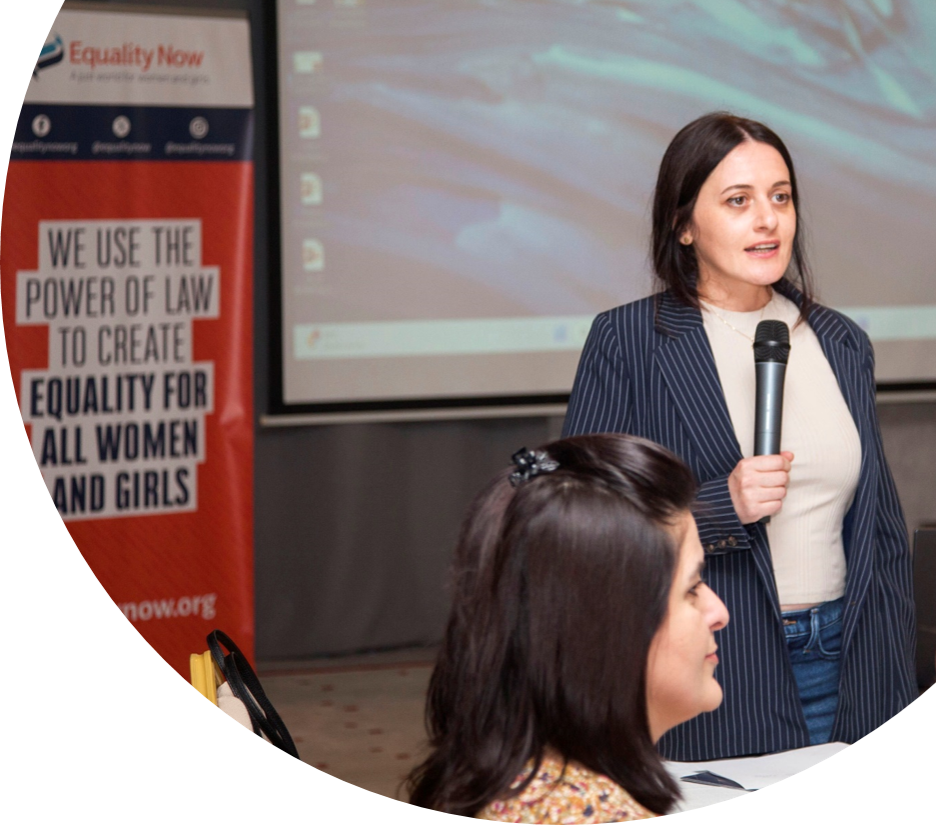
- AMSOPT (Ending Harmful Practices – End FGM in West Africa)
- Defence for Children International – Sierra Leone (Ending Sexual Violence)
- Ekta Parishad Trust (Ending Sexual Violence – Access to justice, India)
- ERA Coalition, umbrella coalition of almost 300 organizations (Legal Equality)
- Forum for African Women Educationalists – FAWEZA (Ending Sexual Violence)
- FWLD (Ending Sexual Violence – Access to justice, Nepal)
- Hope for Women (Ending Sexual Violence – Access to Justice, Maldives)
- LifeBloom (Ending Sexual Exploitation – End sex trafficking in East Africa)
- National Council of Women Leaders (Ending Sexual Violence – Access to justice, India)
- Tanzania Women Lawyers Association – TAWLA (Ending Sexual Violence)
- Trace Kenya (Ending Sexual Exploitation – End sex trafficking in East Africa)
Key Focus Areas
Equality Now works by bringing about specific changes in unjust laws, advocating for needed changes, and supporting collaborative networks to amplify gender equality work. Their campaigns focus on the following four critical goals.
Achieving Legal Equality
A country’s laws set the tone for how it treats its people and how its people treat each other. When its laws are unfair – when they discriminate on the basis of sex or gender – cultural inequality and violence against women and girls are legitimized and become endemic.
Legal gender inequality affects every stage and aspect of the lives of women and girls, with legislation typically dictating a person’s basic rights and freedoms around economic independence, travel and citizenship, marriage and divorce, and personal safety and dignity.
Equality Now leverages its expertise in international law to end legislative gender discrimination while building coalitions and seeding new movements to advocate for better laws and practices.
|
Achieving Legal Equality: A Success Story For 20 years, Equality Now’s work in Africa has helped establish one of the most progressive legal frameworks for gender equality in the world. As secretariat for the Solidarity for African Women’s Rights (SOAWR) Coalition, Equality Now has played a crucial role in the promotion and implementation of the Maputo Protocol, a landmark legal instrument designed to ensure equality for generations of African women and girls. As of June 2023, the Maputo Protocol has been ratified or acceded to by 44 of 55 AU Member States, (and signed but not yet ratified by eight). |
Ending Harmful Practices
Harmful practices involve forms of gender-based violence or ritual discrimination that have become culturally normalized, such as female genital mutilation/cutting (FGM/cutting) and child marriage. These practices are usually deeply rooted in culture, religion, or tradition, affording them a prevalence that affects women and girls in every part of the world.
Equality Now leads global campaigns against harmful practices, pushing for states to enact and implement effective laws and to be held accountable to their international obligations. Collaborating with its network of regional partners, Equality Now strengthens grassroots efforts by amplifying the voices of local activists to leaders, policymakers, and citizens everywhere.
|
Ending Harmful Practices: A Success Story In 2022, Equality Now published a landmark report on the success to date of a multi-sectoral approach against FGM in Africa in order to encourage best practice and facilitate its adoption by others. Equality Now has supported 23 African countries to adopt a multi-sectoral approach to FGM. |
Ending Sexual Exploitation
Sexual exploitation is when someone abuses another person’s vulnerability or their own position of power or trust for sexual purposes. It can occur within intimate and/or established relationships, as well as in commercial and/or transactional contexts, and can also involve other crimes such as illegal trafficking and/or child abuse.
Equality Now recognizes that sexual exploitation is a complex issue. The organization combines international advocacy with regional and national projects and campaigns to address the legislative, procedural, and socio-cultural drivers of sexual exploitation.
|
Ending Sexual Exploitation: A Success Story In 2022, Equality Now partnered with Women Leading in AI and the joint launch of the Alliance for Universal Digital Rights (AUDRi), drawing global attention to online sexual exploitation and abuse and the need for international law and policy reform. |
Ending Sexual Violence
While anyone can be a victim of sexual violence, structural misogyny and systematic inequality mean that women and girls are much more likely to experience sexual violence and much less likely to perpetrate it than men. Because the vast majority of victims are women and girls and almost all perpetrators are men, sexual violence is a form of gender-based violence that can only be eliminated by tackling the root causes of sexism.
Over her lifetime, one in three women will experience physical or sexual violence — regardless of age, background, or country — which means that sexual violence impacts women and girls in epidemic proportions. However, despite the pervasiveness of these crimes, laws around the world are insufficient, inconsistent, not systematically enforced, and, in some instances, even promote and perpetuate sexual violence.
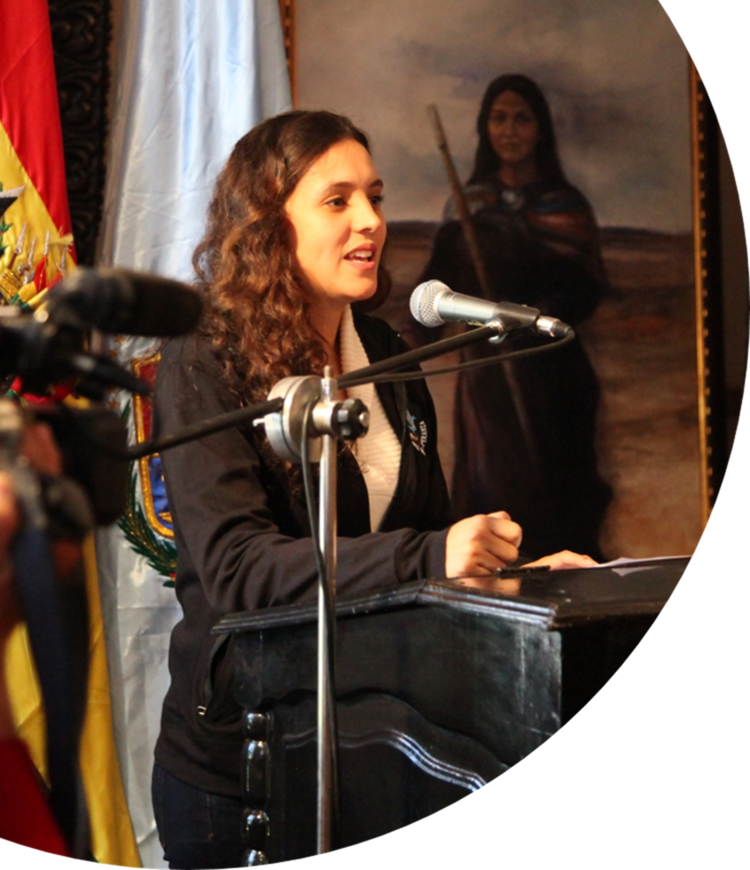 Ending Sexual Violence: Brisa’s Story
Ending Sexual Violence: Brisa’s Story
On January 19, 2023, the Inter-American Court of Human Rights (IACtHR) delivered a landmark ruling that will improve access to justice for millions of child and adolescent victims of sexual violence and prevent discrimination and revictimization during the judicial process in Bolivia and elsewhere.
Equality Now was instrumental in bringing the case before the IACtHR. The case focused on Brisa De Angulo, who was raped repeatedly by an adult relative starting when she was fifteen. Brisa de Angulo is the CEO of A Breeze of Hope Foundation, a Together Women Rise 2016 Featured Grantee. She endured three trials but received no justice in the Bolivian courts. Brisa used every legal avenue available to challenge the judicial system that denied her justice.
Brisa’s experience of Bolivia’s criminal justice system is typical of the struggle adolescent survivors of sexual violence. Bolivia has the highest recorded rates of sexual violence in Latin America. Seventy percent of Bolivian women report experiencing physical or sexual abuse in their lifetime, a third experiencing sexual assault before the age of 18. But there is only a 2% rate of conviction for sexual assaults on children.
The case was the first time that the Court had heard a case about a State failing to uphold the human rights of an adolescent victim of incestuous rape The Court’s decision was notable in that it included every one of Equality Now’s recommendations, establishing extraordinary feminist and progressive legal precedent. The key outcomes of the verdict include:
- changing rape laws to consent-based rather than force-based
- abolishing Estupro laws that shield rapists
- classifying incest as a separate crime as well as an aggravating factor in punishment considerations
- new protocols for investigators and prosecutors.
Additionally, sanctions will likely be applied to the officials who breached Brisa’s rights, and the issuance of a public apology to her and other survivors who were denied justice.
Going forward, Brisa and Equality Now are working with the Bolivian government on how to design and implement stronger laws. And many Latin American women’s rights groups and Latin governments have been reaching out to Equality Now for guidance and partnership on how to implement key measures handed down by the Court.
Other Resources:
Learn more about Equality Now’s approach with these two short videos:

